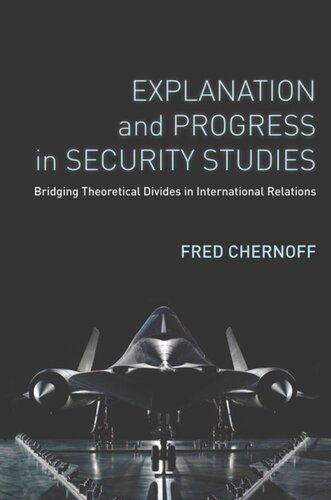

Most ebook files are in PDF format, so you can easily read them using various software such as Foxit Reader or directly on the Google Chrome browser.
Some ebook files are released by publishers in other formats such as .awz, .mobi, .epub, .fb2, etc. You may need to install specific software to read these formats on mobile/PC, such as Calibre.
Please read the tutorial at this link: https://ebookbell.com/faq
We offer FREE conversion to the popular formats you request; however, this may take some time. Therefore, right after payment, please email us, and we will try to provide the service as quickly as possible.
For some exceptional file formats or broken links (if any), please refrain from opening any disputes. Instead, email us first, and we will try to assist within a maximum of 6 hours.
EbookBell Team

4.3
78 reviewsExplanation and Progress in Security Studies asks why Security Studies, as a central area of International Relations, has not experienced scientific progress in the way natural sciences have—and answers by arguing that the underlying reason is that scholars in Security Studies have advanced a range of different notions of "explanation" or different criteria of "explanatory superiority" to show that their positions are better than rival positions.
To demonstrate this, the author engages in in-depth content analysis of the generally recognized exemplars of explanation and explanatory superiority in three of the core debates in the disciplines: Why do states pursue policies of nuclear proliferation? Why do states choose to form the alliances they do? And why do liberal democratic states behave the way they do toward other liberal democracies?
The book reveals that authors in the debates that have shown the most progress use similar criteria in arguing for and against the key explanations. In the nuclear proliferation debate, there is wide divergence in the criteria the most visible authors use, and there is wide divergence in the explanations offered. In the alliance formation/balance-of-power debate, there is some overlap of criteria the most important authors use, and there has been some limited movement toward consensus. In the democratic peace debate there has been much more overlap of criteria the most prominent authors use, and there is agreement on both some positive and negative conclusions.